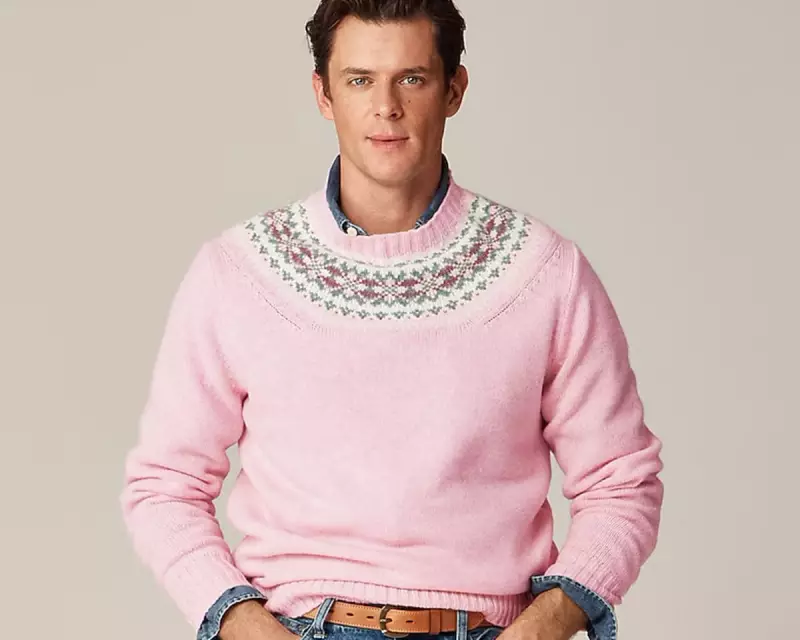
The Pink Sweeter That Divided America
An ordinary men's jumper from American clothing brand J Crew has sparked an extraordinary political firestorm, revealing deep-seated anxieties about masculinity within the MAGA movement. The source of controversy? A simple pink Fair Isle sweater that has conservative commentators and politicians questioning both their fashion choices and their manhood.
The uproar began when conservative social media commentator Juanita Broaddrick tweeted about the $168 sweater, asking her followers: "Are you kidding me?? Men, would you wear this $168 sweater?" The response was overwhelmingly negative, with many respondents rejecting the garment not for its price but for its colour.
Conservative Backlash and Homophobic Undertones
One X user declared: "HELL NO. I'm a man, not gay and won't be dressing up as a Golden Girl anytime soon." The sentiment was echoed across conservative social media, with another user insisting their husband "wouldn't use a pink bathroom towel" let alone wear a pink sweater.
Tennessee Republican congressman Tim Burchett joined the criticism, describing the sweater as "something a sorority girl would wear in the 80s" - a comment intended as withering criticism but that arguably highlights the garment's retro appeal.
The controversy took a distinctly political turn when some commentators began associating the pink jumper with political opponents. One X user suggested they'd only wear it "if I was going undercover in dudes for Kamala," while another Photoshopped Democratic California governor Gavin Newsom's head onto the J Crew model's body.
Historical Context and Fashion Irony
The intensity of the reaction is particularly striking given J Crew's traditional positioning as an all-American preppy label that has historically aligned with conservative aesthetics. In "The Kingdom of Prep: The Inside Story of the Rise and (Near) Fall of J Crew," author Maggie Bullock describes prep as "the bedrock of straightforward, unfettered, 'American' style" - essentially the "leisure uniform of the establishment."
This incident highlights an emerging aesthetic clash between traditional conservatives and the MAGA neo-right, even within brands that were once considered politically safe.
The outrage appears particularly dated given that pink has been embraced by numerous high-profile men in recent years, from fashion-forward celebrities like Harry Styles and Tyler, The Creator to more mainstream figures like Jake Gyllenhaal and Daniel Craig. Even right-wing standard-bearers including Nigel Farage and Donald Trump himself have worn pink ties while maintaining their political credibility.
The Fragility of Modern Masculinity
What makes this controversy particularly revealing is what it suggests about the state of American masculinity. The fact that a simple wool sweater can provoke such strong reactions indicates that any masculinity threatened by a spot of pink knitwear is more fragile than its proponents would care to admit.
Historical context further undermines the current gender-colour associations. In 1918, trade publication Infant's Department reported that "pink, being a more decided and stronger colour, is more suitable for the boy, while blue, which is more delicate and dainty, is prettier for the girl." The current gendered colour associations are relatively recent developments that have evolved primarily through 20th-century marketing.
While J Crew will likely benefit from the free publicity, unlike recent deliberate culture war provocations by brands like American Eagle (which saw its stock rise 18% after a controversial campaign), this incident appears unintentional. The company probably didn't anticipate that a pink sweater would become a lightning rod for debates about the perceived emasculation of American men.
At the time of writing, the controversial jumper remains available in most sizes, suggesting that despite the online outrage, there are still American men confident enough in their masculinity to wear pink.





